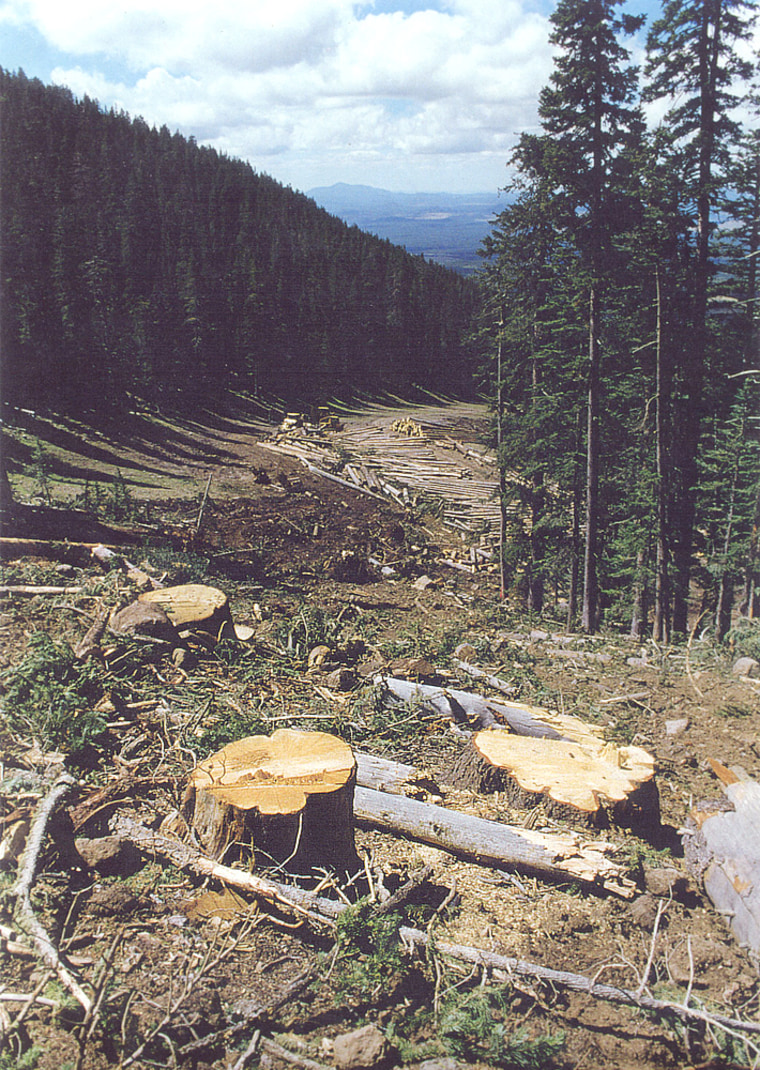A ski area on a northern Arizona mountain may not use treated wastewater to make snow because that would violate the rights of American Indian tribes that consider the peak sacred, a federal appeals court has ruled.
The Arizona Snowbowl on the San Francisco Peaks north of Flagstaff wanted to add a fifth chair lift, spray man-made snow and clear about 100 acres of forest to extend its ski season.
However, the Navajo Nation and a dozen other Southwest tribes filed suit to block the project, arguing that it would violate their religious freedom. The lawsuit also said the government did not adequately address the environmental effect of using wastewater, which would be pumped up a pipeline from Flagstaff.
In a decision Monday, Judge William Fletcher of the 9th U.S. Circuit Court of Appeals said the snowmaking scheme violated the Religious Freedom Restoration Act of 1993 and would be akin to using wastewater in Christian baptisms.
"We are unwilling to hold that authorizing the use of artificial snow at an already functioning commercial ski area in order to expand and improve its facilities, as well as to extend its ski season in dry years, is a governmental interest 'of the highest order,'" Fletcher wrote for the three-judge panel, which heard arguments in September.
Howard Shanker, who represents several tribes, including the Navajo, said Monday's decision could have important repercussions.
"Hopefully, this stands because it creates a tremendous precedent for tribes to protect their sacred sites," he said.
The ruling overturned an opinion by U.S. District Judge Paul Rosenblatt in Phoenix, who said last year the tribes failed to show the project would affect their exercise of religion.
The 9th Circuit panel also ruled the U.S. Forest Service did not adequately address the possible health risks of drinking water tainted by runoff from snow made with treated wastewater.
Snowbowl owner Eric Borowsky said he'll either try to appeal to the U.S. Supreme Court, or make snow using water pumped from company-owned land.
"We are definitely going forward with this," Borowsky said. "This ruling is definitely the wrong ruling and it has a major impact on federal land."
For the third time in four years, the Arizona Snowbowl, which brings an estimated $10 million annually to Flagstaff's economy, opened late this winter because of a lack of snow. It closed for the season this past weekend because of dwindling snow on its slopes, located above 9,000 feet.
